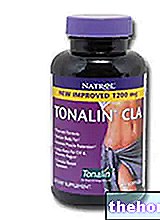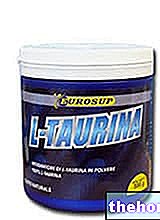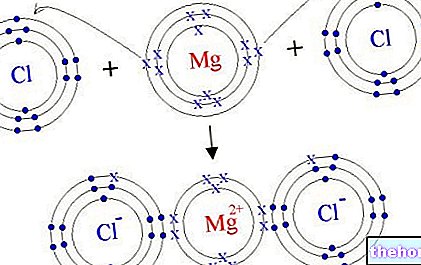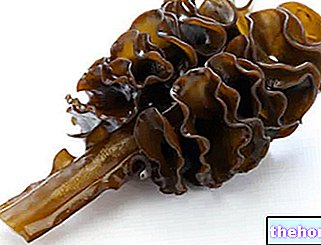" first part
The importance of vitamins
More and more nutritionists are emphasizing the spread of the "vitamin deficiency" problem in the population. The main culprit of these deficiencies is, for a change, the modern lifestyle, which often leads to monotonous and not very varied diets. It must also be considered that, for "par condicio", even the foods of the twenty-first century are increasingly poor in vitamins.

Therefore, human nutrition cannot ignore an abundant and regular consumption of fresh fruit and vegetables, as well as the products derived from them (soups, fruit juices, etc.). Equally important is the consumption of meat, eggs, fats and seasonings (oil and butter), necessary to supply the body with all those vitamins and minerals that are absent or lacking in other food groups.
For runners and walkers, also by virtue of the increased needs, it is therefore essential to include a lot of fruit and vegetables in one's diet. The consumption of whole foods of biological origin, in addition to being a source of favorable carbohydrates, helps to enrich the diet with minerals and vitamins.
Vitamin supplements should therefore be understood as an aid to be used in case of increased need or if the diet is deficient in certain foods. It is however important to consider these products as supplements and not substitutes, both because they have a lower bioavailability, and because they are free of fiber and other important substances contained in their natural counterpart.
Fish and omega-three supplements
For several years now, researchers have been constantly focusing on essential fatty acids: linoleic acid (progenitor of ω6) and α-linolenic acid (progenitor of ω3). Although both are very important for our health, it is generally preferred to increase the intake of omega-three, often deficient due to a limited consumption of fish and fish products. Only this food and a few others (linseed and oil from which it is extracted), are able to rebalance the omega-3 / omega-6 ratio (which in the diet of our ancient predecessors was 1: 1, while currently it is around 1:10, when it should be brought back, according to the most modern views, between 1: 2 and 1: 4).
Thanks to the achievement of this balance there would be an "optimal production of" good "eicosanoids, a series of endogenous mediators which, substantially, owe their adjective to the ability to reduce inflammatory states. Good, therefore, because they prevent many diseases, cardiovascular ones first of all, but also because they ensure the health of the whole organism. And the runners? The reduction of inflammatory states is an excellent aid in the prevention of injuries and those annoying pathologies from repeated microtrauma (tendinitis, muscle contractures, strains, etc.). Omega-three fats are also important for their vasodilatory and immunostimulating properties; they also seem to favor the release of growth hormone.
Hydration, salt supplements and rehydration
When sporting activity is carried out in particular climatic conditions, hydrosaline supplementation is one of the few practices to be recognized as a necessity by the vast majority of doctors. Suffice it to say that a loss of fluids equal to 2% of body weight (1.5 kg for a man who weighs 70) reduces the organic yield by about 20%
The correct use of these supplements allows you to effectively prevent dehydration and electrolyte imbalances; however, it is essential to always keep in mind that the ideal drink must be low in concentration. Often, at an amateur level, sportsmen abound with doses of mineral salts and maltodextrin, starting from the "naive assumption that" more is better ". In reality, a too concentrated drink risks creating serious intestinal disorders and thus accentuating what it was trying to prevent.
To be rapidly absorbed, the "water" must be slightly chilled (about 10 ° C), it must not be hyperosmolar (so be careful not to overdo it with the addition of salts), but isotonic (ie similar to the concentration of plasma (280 -300 mOsm / l) or slightly hypotonic; it must also contain minimal quantities of carbohydrates (5-8%, in any case less than 10%).




























